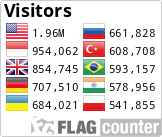Inflation and Economic Growth Tradeoff, and Its Impact on Indonesia Poverty
DOI:
https://doi.org/10.59613/global.v2i8.262Keywords:
Economic Growth, Inflation, TradeoffAbstract
There was tradeoff between inflation and economic growth in Indonesian economy over the last three decades, from 1990 to 2021. When economic growth tended to increase, inflation would also increase. The increasing scale of business sectors due to the increasing of economic growth shifted price and wage setting in the same direction, then increasing labor demand, and decreasing poverty. This study used a VAR model to estimate tradeoff between inflation and economic growth, and OLS model to estimate the relationship between economic growth and the poverty, and also between inflation and poverty. A VAR model explained that there was a positive bi-direction causality between inflation and economic growth, however, there was uncertainty whether economic growth caused inflation, or whether inflation caused economic growth. Although economic growth had a positive effect on reducing poverty, but due to the tradeoff between inflation and economic growth, then economic policies had to be designed to fully controlling inflation during the persistence of economic growth to prevent an increasing of poverty. Expected inflation and long run inflation target should always be a major concern when setting monetary policy to avoid higher economic fluctuation that could stimulate increasing of inflation and poverty.
Downloads
Published
How to Cite
Issue
Section
License
Copyright (c) 2024 Mangasa Augustinus Sipahutar

This work is licensed under a Creative Commons Attribution 4.0 International License.













